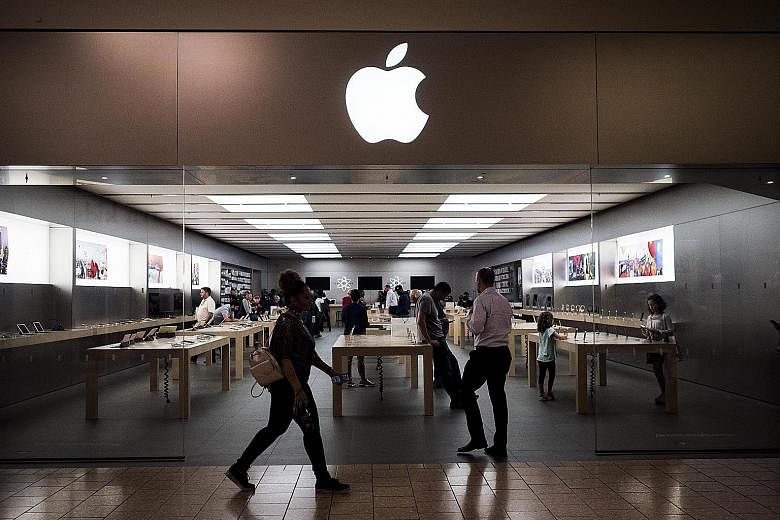WASHINGTON • It is a sign of Apple's success but also a thorny problem: Its cash stockpile has hit a staggering US$256.8 billion (S$358 billion), sparking debate on what to do with such massive reserves.
Apple's quarterly report on Tuesday showed that its cash holdings - the vast majority held overseas - jumped to a sum that tops the entire economic output of Chile.
The tech giant has resisted the idea of bringing the cash home, because of disincentives in the US tax code - it allows multinational firms to defer profits while they are held overseas but taxes income at up to 35 per cent when repatriated.
Proposals by US President Donald Trump and lawmakers could lower the tax rate for repatriated earnings, an incentive for Apple and others to put the money to work in the United States.
Apple has become the most valuable and profitable company of the current era. But it faces unique challenges because its earnings come mostly from the iPhone, which faces increasingly tough competition in a saturated smartphone market.
Apple faces periodic pressure to return more cash to shareholders with higher dividends and more share buybacks, and has already spent US$200 billion doing this.
Mr Patrick Moorhead of Moor Insights & Strategy argued that returning all the cash to shareholders "doesn't help further anyone's strategic interests" and that Apple needs to find ways to diversify its business.
One way to do this would be "going vertical", or acquiring a chipmaker such as AMD to supply all Apple devices, Mr Moorhead said.
Apple's situation has highlighted the growing stockpiles of cash held overseas by US multinationals, now estimated to be between US$2.5 trillion and US$3 trillion.
Stanford University professor Lisa De Simone, who specialises in international taxation, said the current code creates "incentives for companies to shift as much of their profits as they can offshore".
But she said a temporary tax "holiday" as Washington tried in 2004 would only increase the incentives.
"Companies like Apple have only increased their income shifting in expectation they could get another holiday later on," she said, arguing for a permanent tax change.
The Trump administration is seeking to encourage firms to bring those earnings home for investment and job creation in the United States.
Could Apple use some of the cash to bring large-scale manufacturing back to the United States?
Mr Jan Dawson of Jackdaw Research said this is unlikely because of Apple's manufacturing and supply process.
"We simply don't have the work force to support this scale of manufacturing," he said.
AGENCE FRANCE-PRESSE

